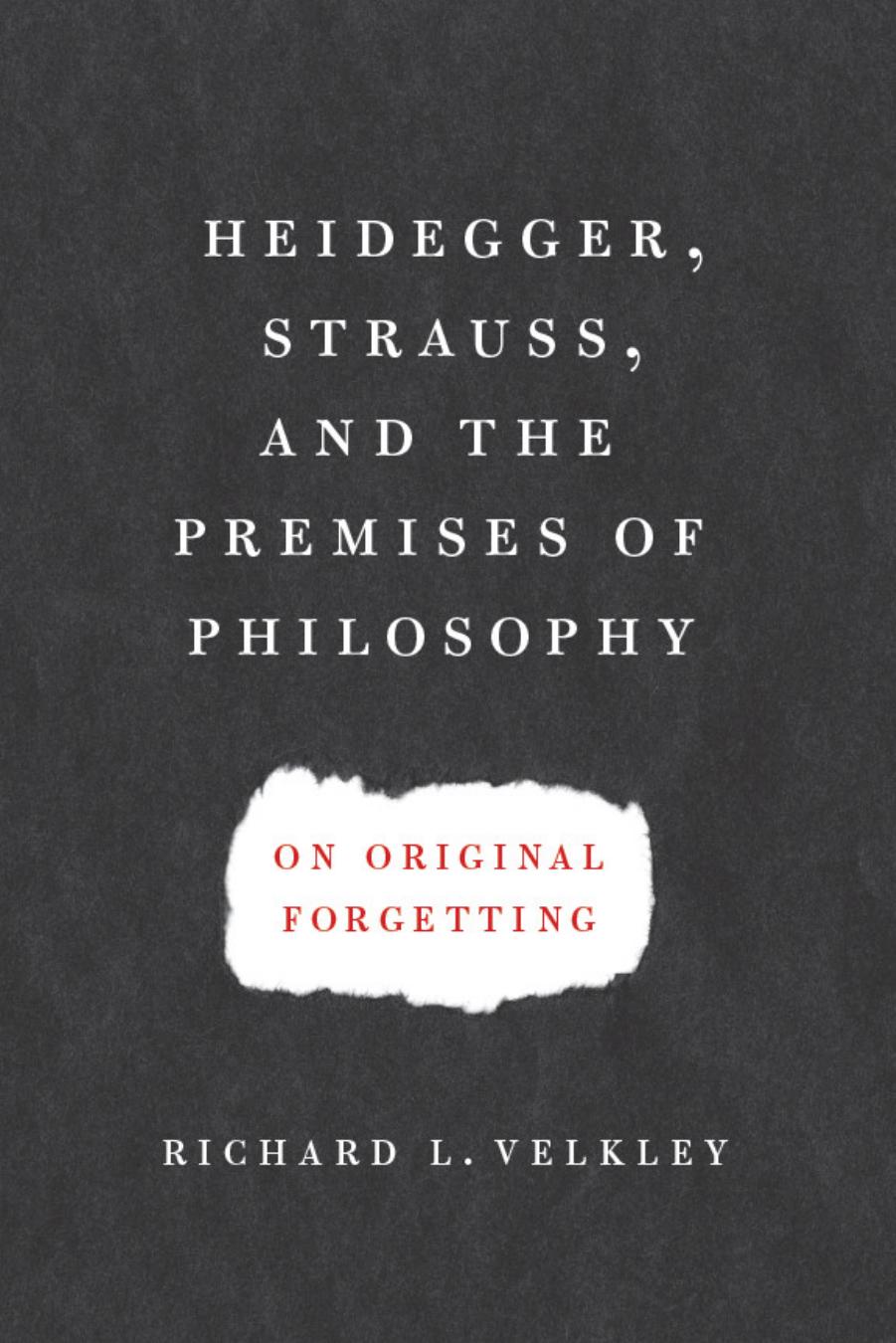Heidegger, Strauss, and the Premises of Philosophy: On Original Forgetting by Richard L. Velkley

Author:Richard L. Velkley [Velkley, Richard L.]
Language: eng
Format: azw3, pdf
Publisher: University of Chicago Press
Published: 2011-10-02T16:00:00+00:00
CHAPTER 6
The Room for Political Philosophy: Strauss on Heidegger’s Political Thought
I
In the essay that is his final extended statement on Heidegger, Strauss defines political philosophy as the inquiry “concerned with the best or just political order which is by nature best or just everywhere and always” and observes that “in the last two generations political philosophy has lost its credibility.”1 In a remarkable change this inquiry has “lost its credibility in proportion as politics itself has become more philosophic than ever in a sense” for “throughout its whole history political philosophy was universal while politics was particular.” Political events are now globally connected, such that unrest in an American city “has repercussions in Moscow, Peking, Johannesburg, Hanoi, London, and other far away places.” Politics has become universal, or at least it cannot be as wholly focused as in earlier times on “the being and well-being of this or that particular society (a polis, a nation, an empire).” Implicit in Strauss’s observation is the global transformation of politics in the modern era by political philosophy of Western origin with a universal purpose. Philosophy in the modern era became more active and charitable (and less contemplative and proud) as it undertook a universal practical project: “the relief of man’s estate” by science and technology, the promotion of prosperity and the rights of man, the creation of a league of free and equal nations.2 Accordingly it thought that its highest philosophical ends could be adequately realized in the realm of practice. By contrast premodern political philosophy reflected on what is “by nature best” but accepted with resignation the unlikelihood of its achievement in any particular society. Politics as a practical art, although enlightened by philosophers, acknowledged this limitation and pursued the best possible as allowed by the local conditions and character of given societies.
The present situation contains a profound paradox insofar as universalist politics, the product of universalist political philosophy, is no longer supported by belief in the principles of modern political philosophy or indeed any political philosophy. Strauss characterizes this situation as the “crisis of the West,” which is above all a crisis of political philosophy.3 Political philosophy has been discredited by two powerful forms of thought, positivism and existentialism, according to which “the validation of sound value judgments” is impossible. Positivism holds that only scientific knowledge is genuine knowledge, and such knowledge is unable to validate or invalidate any value judgments. Existentialism holds that “all principles of understanding and of action are historical, i.e., have no other ground than groundless human decision or fateful dispensation.”4 According to existentialism, science has no claim to be more “than one form of viewing the world among many of viewing the world,” and what is more, its separation of fact from value is untenable. This however does not mean that existentialism provides a nonarbitrary grounding of values, since for existential thought any supposition of a universal value is a mere prejudice.
The opening paragraph of Strauss’s essay lays out in compressed fashion what is probably his best-known account of political philosophy and of the contemporary modes of thought opposing it.
Download
Heidegger, Strauss, and the Premises of Philosophy: On Original Forgetting by Richard L. Velkley.pdf
This site does not store any files on its server. We only index and link to content provided by other sites. Please contact the content providers to delete copyright contents if any and email us, we'll remove relevant links or contents immediately.
The remains of the day by Kazuo Ishiguro(8975)
Tools of Titans by Timothy Ferriss(8365)
Giovanni's Room by James Baldwin(7326)
The Black Swan by Nassim Nicholas Taleb(7106)
Inner Engineering: A Yogi's Guide to Joy by Sadhguru(6785)
The Way of Zen by Alan W. Watts(6600)
Asking the Right Questions: A Guide to Critical Thinking by M. Neil Browne & Stuart M. Keeley(5759)
The Power of Now: A Guide to Spiritual Enlightenment by Eckhart Tolle(5752)
The Six Wives Of Henry VIII (WOMEN IN HISTORY) by Fraser Antonia(5497)
Astrophysics for People in a Hurry by Neil DeGrasse Tyson(5182)
Housekeeping by Marilynne Robinson(4436)
12 Rules for Life by Jordan B. Peterson(4299)
Double Down (Diary of a Wimpy Kid Book 11) by Jeff Kinney(4261)
Ikigai by Héctor García & Francesc Miralles(4246)
The Ethical Slut by Janet W. Hardy(4242)
Skin in the Game by Nassim Nicholas Taleb(4239)
The Art of Happiness by The Dalai Lama(4125)
Skin in the Game: Hidden Asymmetries in Daily Life by Nassim Nicholas Taleb(3989)
Walking by Henry David Thoreau(3953)
